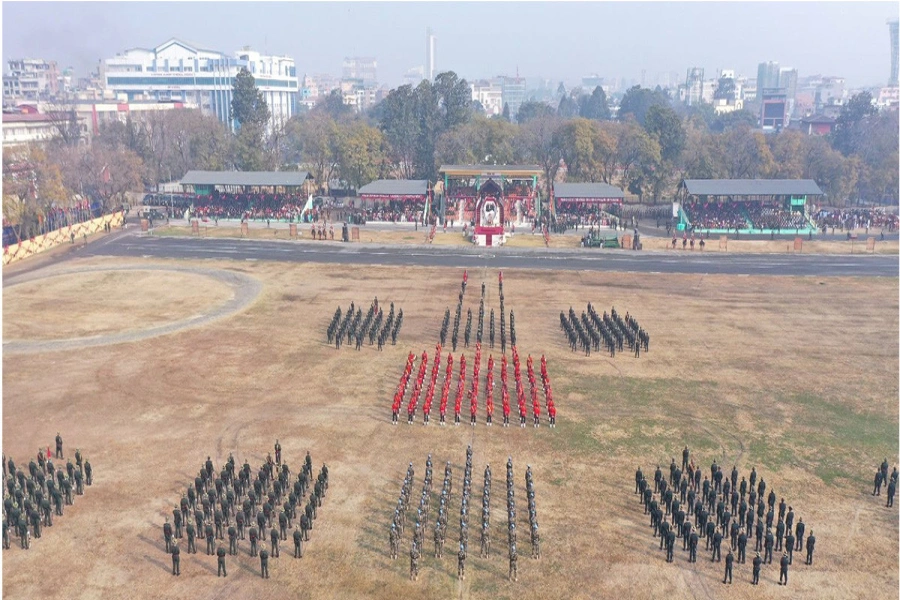KATHMANDU, Dec 26: Minister for Foreign Affairs Pradeep Gyawali has said that the agreement on the Millennium Challenge Corporation (MCC) between Nepal and the US would be endorsed through parliament during the ongoing session of the lower house.
Speaking at the National Assembly’s Committee on National Concern and Coordination (NCC) Wednesday, Foreign Minister Gyawali also clarified that the MCC agreement was not reached by the present government and that it was signed after reaching a broad political consensus within the country. “There is no need to link the MCC with the Indo-Pacific Strategy. MCC is a separate entity. Nepal won’t be part of any military alliance,” he said.
The parliamentary committee had invited the foreign minister to explain the controversy surrounding the MCC.
MCC deal will be endorsed by winter session of parliament: Fore...

On the occasion, Gyawali complained that most people went for rumors instead of lending credence to what he has been saying repeatedly about the MCC. “The MCC agreement will be expedited and endorsed through the winter session of parliament. It will be endorsed. No one need be confused about this,” he said, refuting claims that it was part of the Indo-Pacific Strategy.
On the occasion, lawmakers asked why they needed to endorse the agreement through parliament and why there was any need to seek Indian consent for expediting its implementation in Nepal.
Gyawali said that given the lack of political stability in the past and since many development projects were thwarted due to a tendency to look at these along partisan lines there was an agreement to endorse the MCC through parliament to strengthen the trust of those funding it.
“There is no point in making this an issue when such a big volume of aid is involved,” he said.
On the question of seeking consent from India, Gyawali said that since the power transmission line [which comes under the MCC] extends beyond the Nepal border there was a need for consensus with the Indian side also. “It’s not like building the East-West Highway or the Karnali Highway. There is a need of consent from India as well for the cross-border transmission line,” he said.
Lawmakers also questioned why Nepal was not allowed to appoint an auditor to oversee the expenditure details. Responding to the query, Gyawali said there is a provision for audit of expenditures by a panel that will have the finance secretary as its coordinator. Since the US has made a huge investment for the project they will also audit the expenditures, he clarified.
Arguing that any move to discontinue or abort an agreement reached in the past could seriously erode the country’s credibility, Gyawali said it will be in the greater interest of the country to endorse the MCC and implement it as this could send out a message that Nepal has political stability now and an improved investment climate.






































